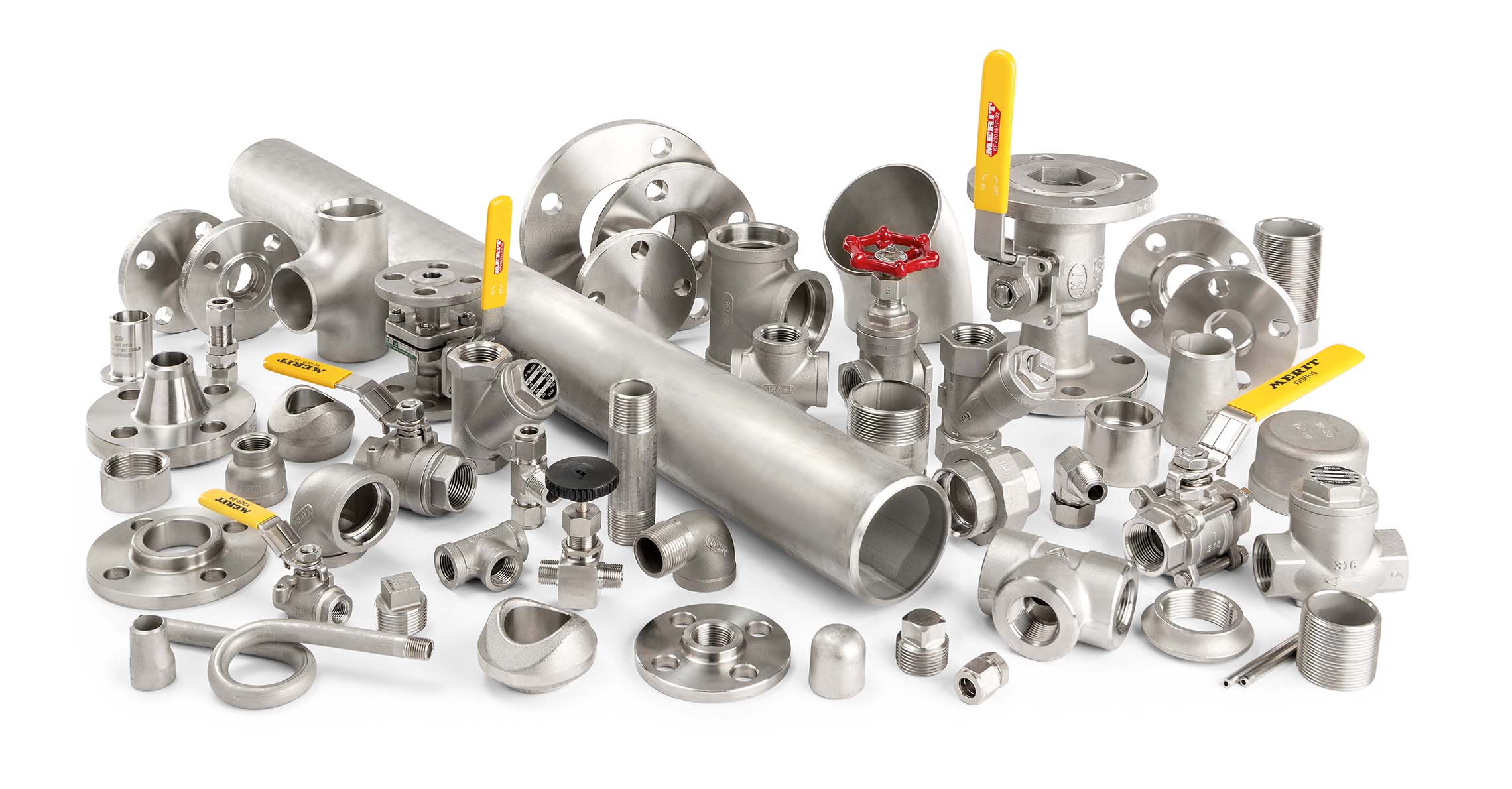At Merit Brass, we understand that properly creating, storing, and transporting products is extremely important throughout the food and beverage industry. In the food and beverage industry, raw agricultural materials are transformed into products for consumption by applying labor, machinery, energy, and scientific knowledge. Today, more than 30% of food and beverage applications utilize stainless steel piping material.
READ OUR BLOG ON STAINLESS PROPERTIES
.png)
The food and beverage industry is divided into three main segments: production, packaging, and distribution. The production side of the food and beverage industry includes everything from food processing and manufacturing to the creation of beverages, packaged foods, and more.
The packaging side of the food and beverage industry includes product protection, safety, freshness, and brand identity. The distribution side of the food and beverage industry includes the transportation of the final goods to the consumer.
It's crucial that the pipe and piping connections being made are of the utmost quality and will measure up to health and safety standards throughout the production, packaging, and distribution stages. Sanitization is extremely important because the final products in this industry will be consumed.
One of the most common metals used throughout the food and beverage industry is stainless steel. Not only is it easy to clean, but it also does not easily breed bacteria making it a sanitary choice throughout the industry. Stainless Steel is extremely resistant to corrosion and aging resulting in less repairs. Stainless Steel is also able to withstand high temperatures and pressures without altering the state of the metal; it holds its shape under high circumstantial conditions. Lastly, it does not deteriorate when sterilized or cleaned and is resistant to thermal shock.
Austenitic stainless steels are used in various applications within the food and beverage industry. Type 304/L is a very popular grade because of its resistance to oxidation and corrosion. It is also tolerant of the powerful detergents used to keep the production facilities clean. Type 316/L is resistant to salt containing food due to the presence of molybdenum.
EXPLORE STAINLESS STEEL SOLUTIONS
Choosing the right grade of stainless will favorably impact the life of your equipment and reduce your overall life cycle costs. Keep in mind also that stainless steel has an average recycled content of approximately 66%.
Always consult with your project team to decide on which grade of stainless will serve your application well in its present environment.
Easy to Clean Without a Need to Dismantle
Strong
Resist Well: Impact, Fatigue, Wear, Abrasion, and Erosion
Does Not Breed Bacteria
Corrosion Resistant
Withstand High Temperatures
Holds Its Shape Under High Circumstantial Conditions

FAQ
LEARN MORE